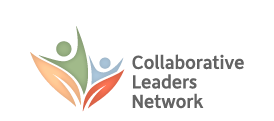
The convener plays a pivotal role in any collaborative process. This checklist serves as a guide for what is typically needed by the convener to launch and carry out a collaborative leadership effort. The steps can be tailored to suit the specific needs of any given collaboration.
- After scanning and assessing top-level challenges or issues, I have identified one or two important leverage points that could benefit from a collaborative leadership approach and I think the timing might be right.
- I have conducted or commissioned an initial assessment among respected colleagues, leaders, and others. Through this, I have identified key challenges or issues and have selected one that seems to have the necessary political or policy impact and the potential to garner support and involvement by those who could contribute meaningfully to a needed dialogue or solution.
- If it is appropriate, I have secured partners to serve as co-conveners and sponsors. We have discussed the collaboration in detail and are in agreement about the purpose of the collaborative leadership process.
- I, and any co-conveners, recognize that to be successful, the collaborative leadership process needs to be carefully designed and given sufficient time and resources to generate long-lasting solutions.
- I, and any co-conveners, have a preliminary and realistic idea of the time and resources needed for the collaborative process and have secured the necessary resources.
- If the process or outcome will require political or community support, I have built the necessary bridges to gain that support.
- I understand that a skilled, neutral facilitator may be needed to design and carry out an effective collaborative leadership process to tackle the issue.
- I recognize that a neutral venue for group meetings may produce the best results.
- I will use due diligence and seek recommendations to select a facilitator who is a good fit for the process.
- I will make my expectations clear to the facilitator regarding any “givens” for the process, internal and external communication constraints, financial limitations, deadlines, and my right to review materials or other work products before publication.
- I have a clear agreement and contract with a project leader, manager, or facilitator, and we are clear on our respective roles and expectations.
- I will ensure legitimacy of the process through inclusive participation and will work with the facilitator to determine the best approach for inviting members to the group.
- To launch the process, I will help set the stage for the group at the first meeting by welcoming participants and discussing the purpose of the collaboration, my role, the roles of the facilitator or project manager, and how the work of the group will be utilized or implemented.
- Once the process gets underway, I will monitor and support the agreed-upon process and will be available to the facilitator or project manager to provide timely feedback and direction.
- I understand that multi-stage processes are never totally predictable and that some adjustments to the original scope or timeline may be needed to ensure a successful outcome.
- I will honor the resulting work of the group to the greatest degree possible and, when appropriate, make every effort to ensure that the group’s work is implemented.
- At the conclusion of the project, I will acknowledge the work of the participants, other co-conveners or sponsors, and the project manager or facilitator. I will agree to be part of bringing appropriate closure to the effort.
- If an external communications plan has been created as part of the process, I will help ensure that the plan is carried out.
- I will meet with the facilitator or project manager to debrief and evaluate the process in order to learn best practices for future collaborations and strategize about areas that could be improved.
- If funding has been secured for the collaborative leadership effort, a summary of the process and the outcomes of the group will be communicated to funders.
